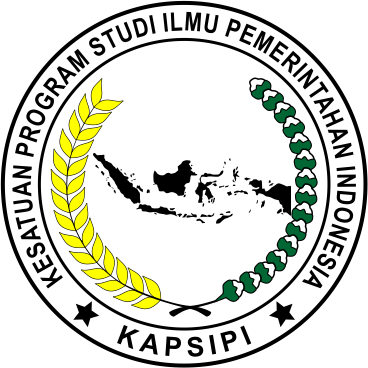Relocation Policy of Street Vendors in Malioboro: Review of Policy Formulation Analysis Study
DOI:
https://doi.org/10.18196/agimjournal.v1i1.5Keywords:
Policy Formulation, Malioboro Street, Relocation PolicyAbstract
In public policy formulation, the interests and welfare of the community must be prioritized as the direction for policy formulators. Policy formulation is oriented towards the needs, desires, and interests of the community so that later it will receive full support from the community. Policy formulation is also a very important stage and must be carried out appropriately and comprehensively. The stages in the policy formulation process are problem identification, agenda setting, policy problem formulation, and policy design (Alaslan, 2021). In the process of policy formulation for the relocation of Malioboro street vendors, problem identification is first carried out to identify existing problems based on the infrastructure aspects of facilities and infrastructure such as the loss of pedestrian rights due to street vendors selling on the sidewalk. The policy formulation by the government can finally be realized little by little. The relocation policy of Malioboro street vendors affects tourist visits, which indirectly affects the street vendors. With the relocation of street vendors, they get adequate public facilities, ease of mobility for traders, security guarantees, and time efficiency.
References
Afrizal, S. and Dewi, P. (2021). Dampak covid-19 pada pedagang kaki lima (pkl) di kota serang. Jurnal Sosiologi Nusantara, 7(2), 279-298. https://doi.org/10.33369/jsn.7.2.279-298
Alaslan, Amtai. 2021. 53 CV. Pena Persada Formulasi Kebijakan Publik: Studi Relokasi Pasar. http://dx.doi.org/10.1016/j.encep.2012.03.001.
Amanta, Luqyana, a Bevaola Kusumasari. 2019. „Intervensi Aktor dalam Mempengaruhi Formulasi Kebijakan Lingkungan : Studi Kasus Kebijakan Relokasi Tambak Udang di Yogyakarta". Jurnal Borneo Administrator 15(2): 179–98.
Amri, Pahmi, Achmad Nurmandi, a Dyah Mutiarin. 2022. „the Role of Policy Actors in Determining the Direction of Disruptive Innovation Policy". Journal of Governance and Regulation 11(4 Special Issue): 374–86.
Amri, Pahmi, Achmad Nurmandi, a Dyah Mutiarin. 2023. „The evolution of sharing economy policies in indonesia transportation sector from the perspective of narrative policy framework". Journal of Infrastructure, Policy and Development 7(1): 1–19.
Andriyansah, A. and Rulinawaty, R. (2023). Performance of local government regulations during the pandemic to improve the economic value of city image in south sulawesi. Media Ekonomi Dan Manajemen, 38(1), 1. https://doi.org/10.56444/mem.v38i1.3028
Damayanti, F. (2024). Dampak pedagang kaki lima dan warung kecil pasca relokasi di sentra wisata kuliner ketintang. Jip ( Jurnal Industri Dan Perkotaan ), 19(2), 127. https://doi.org/10.31258/jip.19.2.127-131
Demas, Kristia Liendika Arruan Minangga, a Ajeng Nugrahaning Dewanti. 2021. „Analisis Faktor-Faktor Yang Berpengaruh dalam Pemilihan Lokasi Relokasi Pedagang Kaki Lima di Kawasan Pasar Pagi, Kota Samarinda". Ruang 7(2): 96–104.
Dimas Dwiyana Putra, a Siska Sasmita. 2022. „Eksternalitas Relokasi Pedagang Kaki Lima di Pasar Kuliner Kota Padang Panjang". Sosioedukasi: Jurnal Ilmiah Ilmu Pendidikan Dan Sosial 11(2): 189–98.
Ferizaldi, Ferizaldi. 2022. „Analisis Kebijakan Relokasi Pedagang Kaki Lima ( K5 ) di Trotoar Jalan Protokol Kota Lhokseumawe". Asia-Pacific Journal of Public Policy 8(2): 69–78.
Hidayah, Fitria Nur, a Warsono. „Resistensi Pedagang Kaki Lima Alun-Alun Bojonegoro Terhadap Kebijakan Relokasi Pemerintah Kabupaten Bojonegoro". 8(1): 47–55.
Imanda, Mochammad Bisma, a Rusdarti Rusdarti. 2020. „Kebijakan dan Implementasi Program Relokasi PKL Kawasan Tlogosari Kota Semarang". Efficient: Indonesian Journal of Development Economics 3(1): 616–24.
Mani, L. (2020). Cultural dimensions, communication, public opinion, and consensus: a study of the implementation of street vendor relocation policy in yogyakarta city, indonesia. Humanities &Amp; Social Sciences Reviews, 8(4), 463-472. https://doi.org/10.18510/hssr.2020.8445
Mani, L., Guntoro, B., Mudiyono, M., & Prajarto, N. (2017). Eksistensi public relation pemerintah kota yogyakarta dalam komunikasi dan negosiasi kebijakan relokasi pedagang kaki lima. Jurnal Ekonomi, 21(3). https://doi.org/10.24912/je.v21i3.22
Mujaddidi, Ah Shibghatullah. 2022. „Relokasi Pedagang Kaki Lima Terhadap Kondisi Sosial Ekonomi (Studi Pedagang Kaki Lima di Arek Lancor Pamekasan)". 2(2): 127–36.
Mutiarin, Dyah et al. 2019. „How do government regulations and policies respond to the growing online-enabled transportation service (OETS) in Indonesia, the Philippines, and Taiwan?" Digital Policy, Regulation and Governance 21(4): 419–37.
Nurany, F. (2021). The policy instruments of street vendor relocation in surabaya bulak fish center. Dia, 19(1), 68-84. https://doi.org/10.30996/dia.v19i1.4800
Oktarina Abizia, Sugiyanto, S., Rini Dorojati, & Irsasri, I. (2023). Mindset of the future of street trader in teras malioboro. International Journal of Social Science, 2(6), 2453-2464. https://doi.org/10.53625/ijss.v2i6.5602
Pasciana, Rostiena, Pupung Pundenswari, a Gina Sadrina. 2019. „Relokasi Pedagang Kaki Lima (Pkl) untuk Memperindah Kota Garut". Kolaborasi: Jurnal Administrasi Publik 5(3): 288– 303.
Pitamaha, Erra, a Sugi Rahayu. „Manajemen Tata Ruang Kawasan Malioboro Berorientasi Pembangunan Berkelanjutan di Kota Yogyakarta". : 1–16.
Pratiwi, Melinda Putri, Arifah Ratna Sari, a Siska Praditya. 2022. „Analisis Pengaruh Sosial Ekonomi Kebijakan Relokasi Malioboro Terhadap Pedagang Kaki Lima". Khazanah: Jurnal Mahasiswa 14(2): 56–63.
Safaria, Anne friday, Sri Sumiati, a Tintin Karwati. 2020. „Implementasi Kebijakan Relokasi Pedagang Kaki Lima di Kabupaten Sumedang". Journal Of Regional Public Administration (JRPA) 5(2): 92–100. http://jurnal.ilmuadministrasisebelasapril.ac.id/index.php/jrpa/article/view/74
Sapulete, Casey Meilinda, Welson Y.Rompas, a Novie Palar. 2022. „Evaluasi Kebijakan Relokasi Pedagang Kaki Lima di Kota Manado Provinsi Sulawesi Utara". Braz Dent J. 33(1): 1–12.
Septian, E. 2022. „Transformasi Konflik Kebijakan Relokasi Pedagang Kaki Lima di Kawasan Malioboro, Kota Yogyakarta". Kolaborasi: Jurnal Administrasi Publik 8(3). https://journal.unismuh.ac.id/index.php/kolaborasi/article/view/9190%0Ahttps://journal.uni smuh.ac.id/index.php/kolaborasi/article/download/9190/5504.
Setiawan, Alan, Hendrianto Sundaro, a Agus Sarwo Edy Sudrajat. 2022. „Kajian Dampak Kebijakan Relokasi PKL Bantaran Kali Es Sawah Besar Kota Semarang Terhadap Kondisi Sosial dan Ekonomi Pedagang".
Sofyan, Abu. 2022. „Strategi Komunikasi Organisasi Pemerintah Kabupaten Bondowoso dalam Relokasi PKL Alun-Alun Rba Ki Ronggo". : 63–77.
Suprianik, a Zainuri. 2022. „Analisis Modal Sosial dan Biaya Transaksi untuk Relokasi Pegadang Kaki Lima, Mungkinkah? Studi Kasus di Jalan Jawa-Kabupaten Jember". Jurnal Ekonomi dan Bisnis 11(1): 49–58.
Thanh, P., Nguyen, H., Ngan, L., Nguyen, D., Phan, G., & Nguyen, T. (2021). No one left behind: risk communication to the street vendors during covid-19 social distancing. Library Hi Tech, 40(2), 357-375. https://doi.org/10.1108/lht-03-2021-0100
Utomo, Sugeng Hadi et al. 2019. Kebijakan Publik dan Dampaknya Terhadap Aktivitas Pedagang Kaki Lima (PKL): Studi Kasus di Kota Batu". Jurnal Transaksi 11(1): 44–50.






